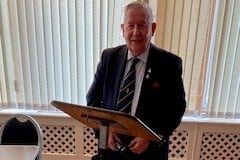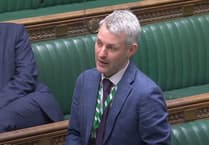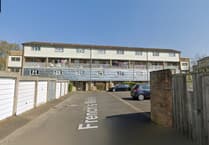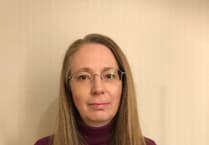A PAST Mayor of Woking and former leader of the borough council will attend a Royal British Legion event today to mark 60 years since the end of National Service.
John Kingsbury is to participate in Remembering National Service – 60 years on at the National Memorial Arboretum in Staffordshire.
The day highlights the role of National Servicemen through an on-site exhibition, testimonies from veterans and family members and a service of Remembrance.
"For 99%, it turned them from boys into men,” said John, 86, a National Service veteran.
John, who did his National Service from 1954 to 1956, served in the Royal Army Ordnance Corps.
He still remembers clearly the day he received the call up. “I felt relief that it was finally here. Although you were due to go in at 18, I went in a few months later.
"I’d rarely been away from home before, so it was something I looked forward to with both interest and with trepidation.
John, who after leaving school had started work as a junior clerk in Guildford, recalled his first experiences of being enlisted.
"On 19 October 1954, we were told to report to Brookwood railway station and were more or less thrown into a large lorry. There were 40 or 50 people who were all taken to Blackdown Garrison, near Aldershot.
"I’m not sure what my thoughts were…I was pretty concerned at what was happening. There I was age 18 with my suitcase, with lots of other people. At the time I had feelings of fear, trepidation, and interest in what was going to happen.
"The first thing that happened when we got to the barracks was that around 200 men were stripped down to be seen by a doctor.”
After basic training, John became an instructor, where he put recruits through trade training as well as continuing their military training.
"First thing I learnt was basic training, which took about eight weeks,” John said. “This is where you’re knocked into shape by the Army, starting by getting a military haircut!
"During basic training we were out on the barrack square at 07:30 with our rifles, we were marched up and down, people shouted at you half the day until you became part of the discipline of the Army.
"It certainly worked, and I think 99% of people who went in benefited from the discipline, working together and good communications.
''I finished my basic training around Christmas 1954, went home for a week, then I was posted to Deepcut, near Aldershot, to learn an Army trade, which lasted for a further eight weeks.
“
I think generally National Service did men and women good; it gave them a feeling of responsibility, it encouraged discipline and made them self-sufficient. I think it was good for society."
John Kingsbury
"I completed a clerical training course where I was taught to type and do shorthand, and then I was kept on at Deepcut as an instructor.
"My job was to teach approximately 30 men their trade training over six weeks in the classroom as well as continuing their military training.
"During basic training, it was pretty awful. We were in concrete blocks with little hot water that would be gone within half an hour, so you had to wash in cold water. Because of the cold weather most of our fingers split too.”
Despite those obstacles, John came away from National Service with a wealth of memories and experiences, mostly positive.
"I remember the comradeship and being forced to work with people from all walks of life,” John said. “Generally, we worked together to support each other. Some of the people who came from the hardest backgrounds were very supportive. You very much worked as a team at Blackdown Garrison.
"I think National Service did me a lot of good. Having to live with people from different backgrounds was helpful.
"The Army taught me to speak in public, and I’ve been a public speaker ever since. It made a big difference in my life, it gave me a lot more confidence in how to conduct myself. I think it helped me considerably.”
How does John feel that this year marks 60 years since the end of National Service?
"The years have simply flown by, yet I can still remember with some fondness and pride my two years of National Service and I am very pleased that this commemoration is taking place.

"I think generally National Service did men and women good; it gave them a feeling of responsibility, it encouraged discipline and made them self-sufficient. I think it was good for society.”
John is still in touch with two comrades from the time, both instructors, and keeps busy as vice-chairman of Surrey County Royal British Legion and chairman of his local branch, where John’s wife, Linda, is the secretary and Poppy Appeal organiser.
Philippa Rawlinson, director of Remembrance at the Royal British Legion, said: "John is one of more than two million men who were conscripted during the post-war years. They are unsung heroes who may have played down their contribution and not really talked about it with their families in the years that have passed.
"We know that everyone’s experience of National Service was different, from those who found it incredibly rewarding to those who, from the very first day, couldn’t wait to be demobbed, but we’re eager to celebrate the invaluable contributions of everyone who served.
"While the youngest conscripts will now be in their eighties, it’s estimated that hundreds of thousands of National Service veterans are still alive today,” continued Philippa. “This ceremony will highlight the special role of National Servicemen and give attendees the opportunity to visit a new National Service 60 exhibition on display at the National Memorial Arboretum until 20 June this year.”





Comments
This article has no comments yet. Be the first to leave a comment.